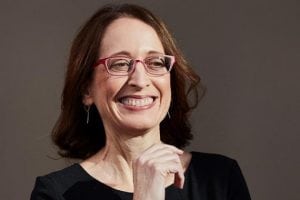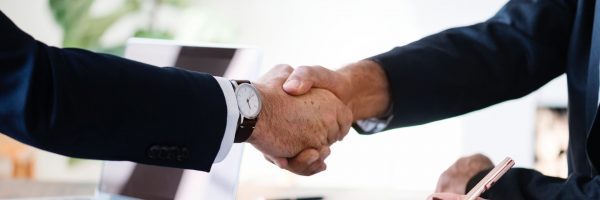Better Advice, Getting Kids To Stop Drinking Soda, and More – Chicago

Let’s explore some of the most interesting stories that have emerged from Chicago business schools this week.
A New Way to Persuade Kids to Drink More Water and Less Soda – Kellogg Insight
Northwestern University’s Kellogg School of Business recently published an article that surveyed a number of strategies that Associate Professor of Marketing Michal Maimaran and his colleagues pursued in collaboration with UNICEF to encourage children to drink more water and less soda.
Maimaran, Stanford’s Szu-chi Huang, BU Questrom’s Daniella Kupor, and the University of Amsterdam’s Andrea Weihrauch attempted to link “water consumption with different goals that kids might want to achieve” by designing four “Drink Water” posters, each with a distinct message: “Be Healthy,” “Learn Faster,” “Make Friends,” and no message.
According to the research, the only poster that spurred bottled-water sales was “Be Healthy,” which Maimaran believes is likely due to the fact that “kids are persuaded by messages that rely on a natural association between the action and goal, such as between being healthy and water.”
You can read more about the research here.
Capitalizing On Sleep-Wake Cycle Can Drastically Increase Digital Ad Profits From Social Media – Mendoza Ideas & News
Recent research from the Notre Dame University Mendoza College of Business shows that “digital content platforms can increase traffic to their websites from social media and boost digital ad profits simply by aligning their posting schedules with target audiences’ sleep-wake cycles, or circadian rhythms.”
Vamsi Kanuri, Assistant Professor of Marketing at Mendoza explains in his new research that, “Consumers engage more with posts containing high-arousal negative information, including anger, stress, anxiety or fear, in the morning than in the afternoon or evening. They engage more with ‘boosted’ (paid to advertise) posts and those requiring higher cognitive processing, such as op-eds or scientific material, in the afternoon.”
“Scheduling Content on Social Media: Theory, Evidence and Application” is due for publication in the Journal of Marketing soon. You can also find more on the research from Mendoza Ideas & News here.
Why is it Better to Give Advice Than Receive It? – Chicago Booth News

Chicago Booth Professor Ayelet Fishbach
A new study from and Penn’s Lauren Eskries-Winkler and Christopher H. Browne Distinguished Professor of Psychology and famed writer Angela Duckworth found that people tend to “benefit more from giving advice than receiving it.”
According to the study, which was recently discussed in the Chicago Booth News, “the very act of giving the advice makes the giver feel powerful and confident. When people lack motivation, receiving advice may actually be harmful … because it undermines feelings of competence.”
The authors note, “In the process of giving advice, advisers may form specific intentions and lay out concrete plans of action—both of which increase motivation and achievement.”
“We hope our findings, which illuminate the motivational power of giving, do just that: goad scientists and practitioners to consider the ways in which struggling individuals benefit from giving.”
“In Giving We Receive: A Counterintuitive Approach to Motivating Behavior” is due for publication in Psychological Science.
You can read the full article from the Chicago Booth News here.
The Tech Giant Investment in Renewable Energy – Chicago News

Let’s explore some of the most interesting stories that have emerged from Chicago business schools this week.
The New Boom – Mendoza Business Magazine
The Notre Dame University Mendoza College of Business recently discussed why tech behemoths like Google and Amazon have begun to invest heavily in renewable energy technologies—and why this largely U.S. phenomenon is about to go global.
The Mendoza Business Magazine article notes that the reason underlying this new trend is due to the fact that clean energy became cheap energy.
“Once the favorable trajectory of renewable energy economics became apparent, it didn’t take long for some of the world’s largest companies to act. Google and Apple signed trailblazing renewable energy deals in 2012.”
It’s likely that these deals helped generate a domino effect where American and Mexican companies “signed deals for just over 10 gigawatts of renewable energy capacity between 2012 and 2017.”
According to the International Energy Agency, “renewables accounted for nearly two-thirds of new power capacity installed globally in 2016.”
The International Renewable Energy Agency reports that the cost of “generating power from onshore wind turbines and solar photovoltaic panels fell by 25 percent and 73 percent, respectively, since 2010, and predicted that all renewable energy technologies would be economically competitive by 2020.”
According to the school, “The market is ready to ramp up outside the United States, too, in part because U.S.-based multinationals are now looking to buy clean energy overseas.”
You can read the full piece here.
Sarah Siderius Gets the Job Done at Google – UIC Business
The Liautaud Graduate School of Business recently profiled current MBA student Sarah Siderius (’19) whose educational experience at UIC laid the groundwork for her stint as a contractor with Google.org, the philanthropic arm of the tech powerhouse.
Siderius explains how her LinkedIn profile helped her land the position. “As a part of my previous role, I helped my employer establish their philanthropic program. Having this experience on my resume caught this recruiter’s eye, which ultimately led to this amazing opportunity.”
Siderius most recently played an integral role in the Google.org Impact Challenge, Illinois, which awards “$1 million in grants to Illinois nonprofits who are creating economic opportunity in the state.”
She explained that she “enjoyed the fact that she was not only able to work for such an amazing company, but that she was able to give back through her work.”
Find out more about Siderius and her new role here.
How the Coffee Industry Is Building a Sustainable Supply Chain in an Unstable Region – Kellogg Insights
The Northwestern University Kellogg School of Business recently profiled the political and ethical hurdles associated with the newfound excitement surrounding the “quality of Robusta and Arabica” grown in the Democratic Republic of Congo right now. According to the article, “Harvesting, washing, and transporting Congolese coffee beans from the area is fraught with peril, from the dozens of militia groups operating in the east of the country to decades of political instability.”
Assistant Professor of Managerial Sciences and Decisions Sciences Ameet Morjaria, whose research focuses on the East African coffee supply chain, explains, “Development dollars have arrived at the shores of the eastern Congo. For those top dollars to have a lasting impact is not straightforward: farmers are poor, lack support, and struggle to get access to finance.”
“Their trees are old, badly maintained, and low-yielding. On top of that, investors worry about the expense and logistics of getting produce out of the country at volume. And lastly there are issues of insecurity and poor governance.”
Morjaria spoke to two experts on the Congolese coffee industry: SHIFT Social Impact Solutions founder Sara Mason and DRC Producer Group Development Platform Head Angel Mario Martinez Garcia.
Mason explains why it’s essential for companies to continue working in DRC.
“We really hope that in a few years, with positive support from the government, there might be a chance to transform the sector into an agricultural growth opportunity that will fully realize its potential.”
She adds that the actual growers are often vulnerable to exploitation due to extreme poverty, lack of education, and limited ability to communicate with the outside world. “Helping to support strong, transparent producer organizations was one of the drivers for creating the SHIFT DRC Producer Group Development Platform.”
Martinez Garcia says, “A quick fix is never going to work in the Congo. And sometimes it’s a challenge to find someone who’s able to provide resources and time and energy for people to work there in the long run.”
“It is really important to continue supporting producers, to continue increasing skills and knowledge. Because they are the ones, even after we end any activity or any project we have there—in a year or 10 years or 20 years—who will still be there working and living and discussing any future of the coffee sector in the Congo.”
You can read more from Northwestern Kellogg here.
STEM Startups, Notre Dame’s New Master’s, and More – Chicago News

Let’s explore some of the most interesting stories that have emerged from Chicago business schools this week.
Why a Choice Doesn’t Feel Like a Choice When Morality Enters the Picture – Kellogg Insight
In new research co-authored by Northwestern Kellogg Assistant Professor of Management and Organizations Maryam Kouchaki finds that “across cultures, when people view a particular decision as being moral in nature, they don’t feel like they are making a choice at all, and they pay less attention to alternative courses of action.”
In other words, “people who viewed a particular issue as moral experienced a lower sense of choice when making a decision related to that issue, as compared to people who did not view the issue as moral.”
Kouchaki notes, “Even though they did the most amazing thing, it wasn’t like they felt that they deliberated. They felt like they had no choice. Their sense of freedom has been constrained and it has a spillover effect for your actual behavior.”
The study was co-authored by Cornell’s Isaac Smith and Nanyang Technological University’s Krishna Savani of Nanyang Technological University.
You can read the full article here.
Notre Dame launches New Graduate Degree in Business Analytics – Mendoza Ideas & News
Notre Dame’s Mendoza College of Business just announced its new one-year, 31-credit-hour Master’s of Science in Business Analytics (MSBA), designed for “pre-professional students with little or no work experience.”
In a recent release, John W. Berry, Sr. Professor of Business and Chair of the Information Technology, Analytics, and Operations Department, describes MSBA students:
“They were either recent graduates that didn’t have the work experience, or international students interested in the STEM degree who wouldn’t be able to work while earning their degree.”
According to the school, the program’s goal is to “provide a rigorous education in applying analytical techniques to massive data sets to solve business problems — knowledge that has become critically important due to revolutionary advances in information technology.”
Katherine Spiess, Associate Dean for Graduate Programs at Mendoza adds, “In addition to learning about cutting-edge data analytics, our MSBA students have the opportunity to explore the ethical dimensions of collecting and analyzing data to promote business as a force for good in society.”
You can find out more about the brand new Notre Dame Master’s of Science in Business Analytics here.
MakerGirl Thrives and Expands to New Heights – Gies School of Business News
MakerGirl, a nonprofit founded by Gies College of Business students to enable “college students to teach science, technology, engineering, and math (STEM) skills to girls ages 7-10,” recently expanded its operations to include robotics and special coding classes at Northwestern University and announced plans to collaborate with DePaul University.
The goal of MakerGirl’s founders is to “impact 10,000 girls by 2023, including half from underrepresented and rural communities.”

The nonprofit MakerGirl startup is built to help introduce young women with leading STEM graduates / Photo via https://www.kickstarter.com/projects/1501163298/makergirl-goes-mobile-midwest-edition
Julia Haried (’15 ACCY, ’16 MAS) and full-time employee at Deloitte, recently spoke about how invaluable the support of the school has been to the launch and growth of MakerGirl.
“In [my social entrepreneurship] class, the idea was born and incubated by myself and co-founder, Elizabeth Engele, and supported by course instructors. The idea was further launched in the iVenture Accelerator, a Gies-supported venture accelerator that gave us $10,000, mentorship, and a summer to grow MakerGirl’s impact at the Research Park. Because of these experiences, I was challenged and encouraged to solve a big social problem.”
Co-founder Elizabeth Engele also adds, “It’s so much fun and fulfilling to build a program that creates a meaningful experience for girls right now that also impacts their future. We have witnessed girls self-identify as MakerGirls after the program, which is incredibly powerful for themselves, their families, and their communities.”
She continues, “MakerGirl brings me the greatest joy when I see young girls get excited about science, technology, engineering, and math, and literally shift who they perceive themselves to be in the world.”
You can read more from the interview here and visit MakerGirl’s official site for more information.
Northwestern Health Insurance Research Finds More Costs – Chicago News

Let’s explore some of the most interesting stories that have emerged from Chicago business schools this week.
Even for the Insured, a Hospital Stay Has Surprising Costs – Kellogg Insight
Health insurance is truly a magical mystery tour of breathtaking anxiety, sometimes worse than you might think! New research explores the consequences of hospitalization on insured versus uninsured patients, which “stretch well beyond out-of-pocket costs to include impacts on credit and long-term earnings.”
In a study co-authored by Northwestern Kellogg Associate Professor of Strategy Matthew Notowidigdo, UC-Santa Cruz’s Carlos Dobkin, and MIT’s Amy Finkelstein and Raymond Kluender, the researchers found that “those without insurance ended up, on average, with $6,000 more in unpaid debt four years after being hospitalized than if there had been no admission. That is 20-times higher than those with insurance, who averaged a $300 increase in such debt four years post-hospitalization.”
Notowidigdo writes:
“We could really see how a person’s financial picture evolved after they spent time in the hospital. Hospital admissions have both financial and labor market consequences that go well beyond out-of-pocket costs but may stop short of bankruptcy. Health insurance, while beneficial, doesn’t cover all of these well enough. Individuals and policymakers need to understand that.”
You can read the full article here.
Historically Black Schools Pay More to Issue Bonds, Researchers Find – Mendoza Ideas & News
A new Journal of Financial Economics paper finds that racial animus is the primary driver of why “historically black colleges and universities (HBCUs) pay higher fees to issue tax-exempt bonds than non-HBCUs.”
“What’s in a (School) Name? Racial Discrimination in Higher Education Bond Markets,” co-authored by Viola D. Hank Associate Professor of Finance at Notre Dame‘s Paul Gao, along with Drexel’s Casey Dougal, Duke’s William J. Mayer, and the University of Washington’s Christopher A. Parsons, found evidence that contradicts a passage from Milton Friedman’s book Capitalism and Freedom, which contends that “economic development deters the expression of discrimination, racial or otherwise.”
After the researchers reviewed underwriting fees—“the fees that underwriters charge a school to bring a bond offering to investors”—they discovered that “HBCU issuance costs were about 20 percent higher than for non-HBCUs,” largely due to the fact that it’s “more difficult for underwriters to find buyers for the HBCU bonds,” particularly in.
Louisiana, Alabama, and Mississippi, where HBCUs pay “underwriters three times more to place their bonds relative to HBCUs in other states.”
According to the article:
“The paper presents several potential solutions to the problem, from lowering the price point for investors to enter this market, to making the associated state tax benefit transferable, to a federal law that designates HBCU bonds as triple tax exempt, applying to federal, state and local taxes.”
You can read more about the research here.
Red Clover Reader Creates An Online Marketplace for Diverse, Educational Children’s Books – Gies School of Business Blog
The Gies-operated iVenture Accelerator enabled early stage education tech startup Red Clover Reader to secure $15,000 in marketing and product development funding.
Co-founded by University of Illinois students Melanie Keil (a master’s student in applied health sciences) and her fiancé Armand Tossou (a Ph.D. in applied economics), Red Clover Reader “solves the lack of cultural diversity in children’s literature by connecting parents and self-published and independent authors of children’s books on an online platform that facilitates the co-creation and dissemination of more culturally diverse and value-focused content.”

Keil and Tossou / Photo via business.illinois.edu
Toussou writes, “iVenture has been a tremendous help for us because it’s both an accelerator and incubator for top student ventures. It’s provided us with mentorship and connected us with a lot of people. It’s a cohort thing. We can interact with anyone on other teams in terms of feedback and connections.”
Red Clover Reader’s goal to capture 5 percent of the $1 billion market for books and related merchandise.
Toussou adds, “We are trying to help parents discover a better alternative to the content they find online that they don’t feel good about letting their kids consume.”
You can read the full article here.
Day-To-Day Creativity, and More – Chicago MBA News

Let’s explore some of the most interesting stories that have emerged from Chicago business schools this week.
Putting Creativity to Work – Chicago Booth Magazine
Chicago Booth recently published an article about how entrepreneurs and employees alike create opportunities for creative thinking.
Bay Area online video startup Darby Smart’s Nicole Farb (’09) suggests setting aside “open blocks of time for less structured thinking while brainstorming initial ideas.” She adds, “In my own life, creativity is a journey. I’m often doing it for the process, not the outcome.” She also advocates that part of embracing creativity is “failing fast.”
U.S. Postal Service Marketing and Client Relationship Manager Mauresa Pittman (’10) writes of the challenge involved in distilling the creative process to just a stamp. She writes, “The creative challenge became, how do we sum up one of the most prominent American artists of the 20th century in a pane of 12 stamps. [We also] need to consider how this message could land with different audiences and ask ourselves if we are being mindful of the diverse viewpoints.”
Ted Wright (’00), founder of Atlanta-based word-of-mouth marketing agency Fizz, believes creativity is the result of “data plus will.” He adds, “We start by asking a lot of questions about your company. For us, creativity starts with what the story is that you are trying to communicate to people.”
You can check out the full article here.
Business Students Learn the Meaning of ‘Moralogy’ During Summer Program in Japan – Mendoza Ideas & News
The Notre Dame University Mendoza Business and Culture in Japan course introduced “undergrads to Japan’s cultural and business traditions during four campus class sessions and two weeks on-site in Tokyo.”
Mendoza Associate Teaching Professor of Management & Organization and Liu Institute for Asia and Asian Studies faculty fellow Jessica McManus Warnell led the 17-member cohort on the trip to understand Japan’s “moralogical” approach to business, which “presents the idea that business can foster a virtue ethic that then makes business better for all stakeholders—customers and clients, employees, managers, and society.”
She writes, “What we were hearing from the companies we visited [in Japan] was that successful business is more about societal impact and employee engagement and customer satisfaction.”
You can read more from the article here.
What Will It Take to Get More Women on Boards? – Kellogg Insight
Northwestern Kellogg surveyed the gender gap that exists within many company boards—19.9 percent of S&P 500 company directors and 14.7 globally—and how to build more momentum to get more women to serve on boards.
The article’s first point involves the consideration of women who happen to be senior VPs or C-level positions other than CEO when companies want to add a female director. “Applying the same qualifying criteria to both male and female directors would increase the pool of executive women who bring talent, experience, and a diverse perspective to board service.”
The article notes that a major part of being considered as a board director involves “honing a value proposition,” which Kellogg’s Women’s Director Development Program has helped almost 800 women understand in order to be better prepared for board opportunities.
The article singles out a story from one high-level executive whose phone did not ring despite “vast experience, incredible skills, and a huge network.”
“When nothing happened, she realized she needed to reach out strategically to an even broader range of people to communicate the value she could bring to particular types of boards and seek their advice. She ultimately secured a seat not only on the board of one company she admired, but a number of others as well.”
Read the rest of the article here.
First Impressions: No Need to Panic! – Chicago News

Let’s explore some of the more interesting stories that have emerged from Chicago business schools this week.
The Personal Statement: No Need to Panic! – Inside Kellstadt
First impressions are stressful across the board, which can make the impression you attach to your business school application all the more nerve-wracking. Current DePaul Kellstadt MBA student Kristen Hall took to the official Kellstadt blog to offer some insights into crafting the perfect personal statement.
In “The Personal Statement: No Need to Panic!” she writes, “My advice to prospective students writing their personal statements would be to share what inspired you to apply to Kellstadt. Each applicant has a different story and connection to the program and sharing your own “Aha!” moment is a way to set yourself apart from other applications.”
You can read Hall’s entire piece here.
How a Genetically Modified Soybean Helped Modernize an Economy – Kellogg Insight
Northwestern University Kellogg School of Management Associate Professor of Finance Jacopo Ponticelli recently co-authored new research that illuminates how “countries develop from agrarian economies into more industrialized ones” by examining the impact of Monsanto’s genetically modified Roundup Ready soybean seed (a.k.a. the Maradona soy) on Brazilian agriculture in the early 2000s.
The research, which was co-authored by University of Zurich economist Bruno Caprettini and Paula Bustos of Spain’s Center for Monetary and Financial Studies, found that “the seed freed up farm laborers to find other jobs, allowing Brazil’s industrial sector to grow, [and] helped farmers put more money in the bank, which led to urban centers getting access to cheaper credit, allowing banks to finance more manufacturing and services firms.”
Ponticelli suggests that Brazil’s example illustrates how “bumps in agricultural productivity can ripple through an entire economy, not only bolstering the manufacturing sector, but exporting fresh capital to the urban centers where new industries tend to grow.”
You can find the full article here.
Mendoza Finance Prof Wins Research Award for Linking Electricity Usage with Stock Returns – Mendoza Ideas & News
Notre Dame University Mendoza College of Business Professor of Finance Zhi Da received the Journal of Financial and Quantitative Analysis’ 2017 William F.Sharpe Award for Scholarship in Financial Research this past May in recognition of his innovative research, which finds that the “growth rate of industrial electricity usage predicts future stock returns for up to one year.”
According to Professor Da’s paper, “industrial electricity usage tracks the output of the most cyclical sectors. So high rate of growth for industrial electricity usage today—indicating an increase in production due to a company’s expectation of increased sales — predicts low stock returns in the future, consistent with a principle called the countercyclical risk premium, [which] states that the market premium tends to run counter to the business cycle.
According to the article, “The Sharpe Award is intended to foster excellence in financial research. Recipients receive a $5,000 prize for the best article published each year in the JFQA.”
You can find more about the reward and Da’s work here.
